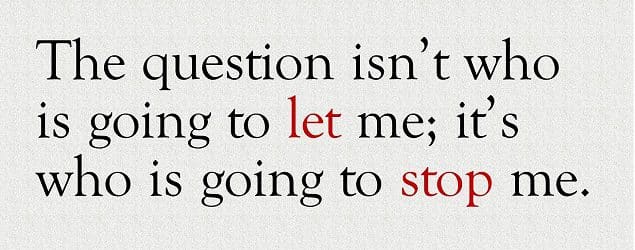Is Greed Good?

Writing for The Atlantic, John Paul Rollert describes the complex moral evolution of the concept of “greed” over three centuries, from Christianity’s unequivocal denunciation of self-interest to the present day, in which, Rollert argues, we have reached a kind of quiet but uncomfortable toleration of greed.
Rollert credits Ayn Rand with opening a “new line of argument . . . in the moral defense of greed,” which he sees as pushing the envelope, but as remaining “far beyond the mainstream.” Instead, he argues accurately, today’s moral outlook is one in which we “tolerate greed” but we’re unwilling to say that it is good.
But if this is true, perhaps it’s because the full lesson of Rand’s argument has yet to be widely understood.
In conventional usage, we equate “greed” or “selfishness” with the exploitation of others. We view the “selfish” person as one who preys on victims for his own gain. But for those of us who don’t want to be predators, the only alternative we’re offered by conventional moral thinking is to offer ourselves up as prey — i.e., to serve others. In other words, we’ve been taught that man must “accept masochism as his ideal — under the threat that sadism was his only alternative.” (The Fountainhead) In Rand’s view, this ignores the possibility of a non-sacrificial relationship to others.
Rand’s aim was not just to offer a defense of self-interest — to relieve it “of any moral taint,” as Rollert puts it — but to untangle our confusion about the meaning of self-interest. What she offers is a
whole new concept of selfishness, in which every man “is an end in himself, not the means to the ends of others.” Each man “must exist for his own sake, neither sacrificing himself to others nor sacrificing others to himself. The pursuit of his own rational self-interest and of his own happiness is the highest moral purpose of his life.”
Rollert accurately notes that today’s culture instills in us “a kind of moral quietism” with respect to selfishness. We accept it tacitly as the engine of our economic system, but we don’t like to talk about it. The final step in the evolution that Rollert recounts would be for people to embrace Rand’s radical perspective that selfishness, properly understood, is not a “necessary evil” but an ennobling virtue.



